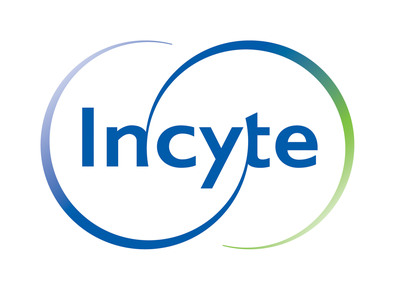- Significant improvement in joint pain, severity of morning joint stiffness and tiredness with baricitinib compared to placebo, were seen as early as day 3
- Post-hoc analysis of two phase 3 studies shows significantly improved joint pain, severity of morning joint stiffness and tiredness compared to adalimumab, within 3 weeks of treatment in patients with rheumatoid arthritis who had inadequate response to conventional synthetic DMARDs, including methotrexate
INDIANAPOLIS, Nov. 14, 2016 /PRNewswire/ -- Eli Lilly and Company (NYSE: LLY) and Incyte Corporation (NASDAQ: INCY) today announced that in two phase 3 trials, RA-BEAM and RA-BUILD, patients with rheumatoid arthritis (RA) treated with baricitinib experienced significant improvements in patient-reported outcomes, including joint pain, severity of morning joint stiffness and tiredness, compared to placebo and adalimumab (Humira®)*. These findings were presented today at the American College of Rheumatology (ACR)/Association of Rheumatology Health Professionals (ARHP) Annual Meeting in Washington DC, November 11-16, 2016.
"This analysis looked at important aspects of rheumatoid arthritis such as the pain, morning joint stiffness and tiredness that are common and debilitating symptoms for patients," said Terence Rooney, M.D., Lilly's senior medical director for baricitinib. "Our study results show that treatment with baricitinib rapidly led to significantly greater symptom improvement compared to adalimumab and placebo. The results are very encouraging, and further support baricitinib as a potential oral treatment for those living with RA."
Key findings include:
RA-BEAM
- In the RA-BEAM trial, once-daily baricitinib (4 mg) significantly improved joint pain, severity of morning joint stiffness and tiredness, compared to placebo, as early as day 3 and significantly improved duration of morning joint stiffness by day 5. With the same dose of baricitinib, these improvements were significantly greater than adalimumab by day 17 (joint pain), day 19 (severity of morning joint stiffness) and day 21 (tiredness).
- In RA-BEAM, compared to placebo, serious adverse events (SAEs) rates were similar for baricitinib and lower for adalimumab; serious infection rates were similar across groups. There were no cases of gastrointestinal perforations. One event of tuberculosis was reported in each of the baricitinib and adalimumab groups. The most common adverse events observed with baricitinib were nasopharyngitis and bronchitis. Discontinuations due to adverse events occurred with similar frequency across treatment groups.
- The 52-week RA-BEAM study randomized 1,307 patients who had active, moderate-to-severe RA, despite ongoing treatment with methotrexate. Patients were randomized to once-daily placebo (n=488), once-daily baricitinib 4 mg (n=487) or biweekly adalimumab 40 mg (n=330). All patients received background methotrexate. At week 24, patients taking placebo were crossed over to the baricitinib treatment group.
RA-BUILD
- In the RA-BUILD trial, baricitinib (4 mg) significantly improved joint pain, severity and duration of morning joint stiffness and tiredness by days 4, 4, 10 and 3, respectively, compared to placebo.
- In RA-BUILD, the incidence of SAEs with baricitinib treatment, including serious infections, was similar to placebo. There were no gastrointestinal perforations in the study. A single case of tuberculosis was reported in a patient receiving baricitinib. The most common adverse events observed were consistent with previous studies of baricitinib in RA. Discontinuation rates due to adverse events were similar between treatment groups.
- The RA-BUILD study enrolled 684 patients with moderate-to-severe RA who previously had an inadequate response to, or were intolerant of, at least one conventional synthetic disease-modifying antirheumatic drug (csDMARD) and had not received a biologic DMARD. Patients received either once-daily baricitinib (2 mg or 4 mg) or placebo, in addition to their background therapy.
"Across its pivotal studies, baricitinib has consistently shown significant and rapid improvement of some of the most commonly felt symptoms experienced by patients with RA," said Steven Stein, M.D., chief medical officer, Incyte Corporation. "These data, especially the strong patient-reported outcomes in patients who did not have an acceptable response with their previous conventional synthetic DMARD therapy, underscore previous results and the potential benefits of baricitinib seen in patients with this devastating disease."
About Baricitinib
Baricitinib is a once-daily oral selective JAK1 and JAK2 inhibitor currently in late-stage clinical studies for inflammatory and autoimmune diseases. There are four known JAK enzymes: JAK1, JAK2, JAK3 and TYK2. JAK-dependent cytokines have been implicated in the pathogenesis of a number of inflammatory and autoimmune diseases, suggesting that JAK inhibitors may be useful for the treatment of a broad range of inflammatory conditions.
In December 2009, Lilly and Incyte announced an exclusive worldwide license and collaboration agreement for the development and commercialization of baricitinib and certain follow-on compounds for patients with inflammatory and autoimmune diseases. Baricitinib was submitted for regulatory review seeking marketing approval for the treatment of rheumatoid arthritis in the U.S., European Union and Japan in Q1 2016, and is being studied in phase 2 trials for atopic dermatitis and systemic lupus erythematosus.
About Rheumatoid Arthritis
Rheumatoid arthritis is an autoimmune disease characterized by inflammation and progressive destruction of joints.[i,ii] More than 23 million people worldwide suffer from RA.[iii] Approximately three times as many women as men have the disease. Current treatment of RA includes the use of non-steroidal anti-inflammatory drugs, oral conventional disease-modifying antirheumatic drugs (cDMARDs), such as methotrexate the current standard of care and injectable, biological disease-modifying antirheumatic drugs (bDMARDs) that target selected mediators implicated in the pathogenesis of RA.[iv] Despite current treatment options, many patients do not reach their therapeutic goals or sustained remission.[v,vi] There remains an important need to provide additional treatments to improve overall patient care.
About Baricitinib Phase 3 Trials
Lilly and Incyte conducted four pivotal phase 3 clinical trials of baricitinib in patients with moderately-to-severely active rheumatoid arthritis to support regulatory submission in most countries. An additional phase 3 study was initiated to support clinical development in China. The clinical trial program includes a wide range of patients including those who are methotrexate-naïve, inadequate responders to methotrexate, inadequate responders to conventional disease-modifying antirheumatic drugs or inadequate responders to TNF inhibitors. Patients completing any of the five phase 3 studies can enroll in a long-term extension study. For additional information on this clinical trial program, please visit www.clinicaltrials.gov.
About Incyte
Incyte Corporation is a Wilmington, Delaware-based biopharmaceutical company focused on the discovery, development and commercialization of proprietary therapeutics. For additional information on Incyte, please visit the Company's web site at www.incyte.com.
Follow @Incyte on Twitter at https://twitter.com/Incyte.
About Eli Lilly and Company
Lilly is a global healthcare leader that unites caring with discovery to make life better for people around the world. We were founded more than a century ago by a man committed to creating high-quality medicines that meet real needs, and today we remain true to that mission in all our work. Across the globe, Lilly employees work to discover and bring life-changing medicines to those who need them, improve the understanding and management of disease, and give back to communities through philanthropy and volunteerism. To learn more about Lilly, please visit us at www.lilly.com and newsroom.lilly.com/social-channels.
*The brand listed is a trademark of AbbVie and not a trademark of Eli Lilly and Company. The maker of this brand is not affiliated with and does not endorse Eli Lilly and Company or its products.
P-LLY
This press release contains forward-looking statements (as that term is defined in the Private Securities Litigation Reform Act of 1995) about baricitinib as a potential treatment for patients with rheumatoid arthritis and the RA-BEAM and RA-BUILD trials, and reflects Lilly's and Incyte's current beliefs. However, as with any pharmaceutical product, there are substantial risks and uncertainties in the process of development and commercialization. Among other things, there can be no guarantee that future study results will be consistent with the results to date or that baricitinib will achieve its primary study endpoints or receive regulatory approvals. For further discussion of these and other risks and uncertainties, see Lilly's and Incyte's most recent respective Form 10-K and Form 10-Q filings with the United States Securities and Exchange Commission. Except as required by law, Lilly and Incyte undertake no duty to update forward-looking statements to reflect events after the date of this release.
i American College of Rheumatology, Rheumatoid Arthritis, http://www.rheumatology.org/practice/clinical/patients/diseases_and_conditions/ra.asp. Accessed May 16, 2016.
ii Hand Clinics, Advances in the Medical Treatment of Rheumatoid Arthritis, http://www.ncbi.nlm.nih.gov/pmc/articles/PMC3135413/pdf/nihms305780.pdf. Accessed May 16, 2016.
iii WHO Global Burden of Disease Report, (table 7, page 32) 2004, http://www.who.int/healthinfo/global_burden_disease/GBD_report_2004update_full.pdf. Accessed May 16, 2016.
iv Arthritis Foundation, Medications for Rheumatoid Arthritis, http://www.arthritistoday.org/about-arthritis/types-of-arthritis/rheumatoid-arthritis/treatment-plan/medication-overview/ra-medications.php. Accessed May 16, 2016.
v Rheumatoid arthritis, Lancet, https://www.ncbi.nlm.nih.gov/pubmed/27156434. Accessed May 19, 2016.
vi Sustained rheumatoid arthritis remission is uncommon in clinical practice, Arthritis Research & Therapy, http://www.ncbi.nlm.nih.gov/pmc/articles/PMC3446437/. Accessed May 19, 2016.
Refer to: Nan Frient; frient_nan@lilly.com; +1-317-471-7040 (Lilly media)
Phil Johnson; johnson_philip_l@lilly.com; +1-317-655-6874 (Lilly investors)
Catalina Loveman; cloveman@incyte.com; +1-302-498-6171 (Incyte media)
Michael Booth, DPhil; mbooth@incyte.com; +1-302-498-5914 (Incyte investors)


Logo - http://photos.prnewswire.com/prnh/20031219/LLYLOGO
Logo - http://photos.prnewswire.com/prnh/20120608/DE21226LOGO
To view the original version on PR Newswire, visit:http://www.prnewswire.com/news-releases/baricitinib-demonstrates-early-response-compared-to-placebo-and-significant-improvement-compared-to-adalimumab-in-patient-reported-outcomes-300361906.html
SOURCE Eli Lilly and Company





